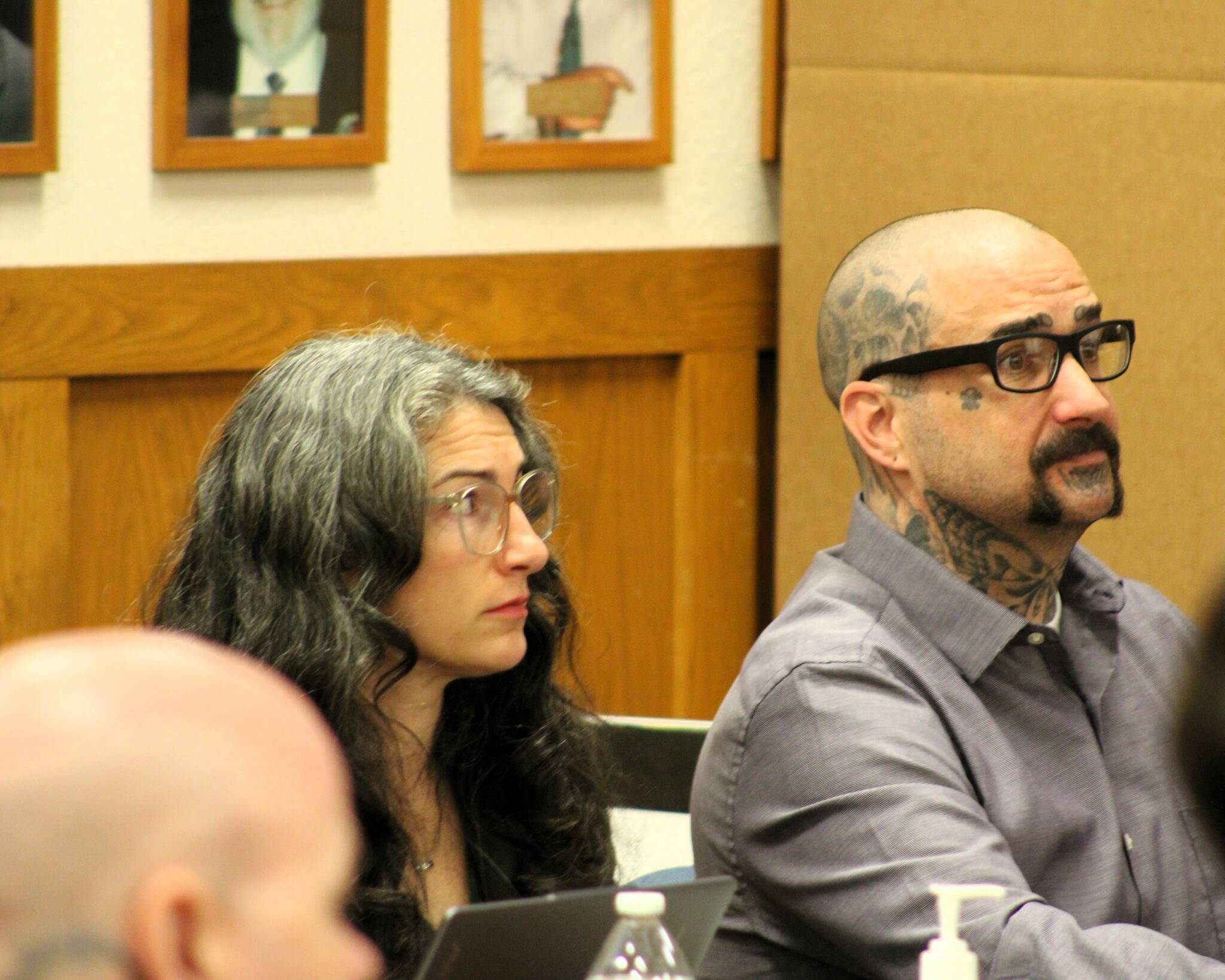Multiple objections concerning the number of gruesome photos allowed to be shown in court and a heated debate on trust issues between opposing councilmembers highlighted the return to in-court proceedings following a holiday break in the trial of the three men accused in the quadruple murder of the Careaga family.
As it had in the first week of opening statements, illness played a factor in what was expected to be accomplished in the Jan. 2 hearing with one scheduled witness ruled out for the day.
Prosecutors adjusted, focusing the day’s work on the questioning of multiple police officials and former county deputy coroner Jaime Taylor, who was elected coroner for Mason County in 2022. The latter half of the day’s work, including testimony from Jennifer Rice of the Kitsap County Sheriff’s Office, took jurors once again through the various scenes of the crime where victims John Derek Careaga, 43; Christale Lynn Careaga, 37; and 16-year-olds Hunter Evan Schaap and Jonathon Felipe Higgins were found dead.
The scenes were shown in graphic images to the jury and those attending the hearings in-person, displaying the many injuries suffered by each victim.
Especially disturbing were pictures showing the burned truck and others showing the remains of John Careaga that were found there. Rice described the truck’s condition with emphasis not shown in her description of the house and other victims. “It was significantly burned,” she said of the truck. “The inside was basically a shell with some parts…the steering wheel, the dash were all burned.”
The same emphasis could be offered of Careaga’s body, the completely blackened remains positively identified by Rice. Tears left the eyes of some in attendance as the pictures were shown.
The use of the photos led to multiple unsuccessful objections prior to their admission from the legal council of Danie Jay Kelly Jr. Many of the photos objected to had, in part, images of the deceased victims, leading Kelly’s attorneys to cite previous pictures that had already been admitted, saying that the continued allowance would be unduly prejudicial.
“Because of the repeated nature of showing gruesome photos, it would also be duplicative and a waste of time to admit more of those photos,” Allyson Barker said.
Defense counsel for the other two defendants, Robert James Watson III and Johnny James Watson, joined in on the objection, but prosecutors responded that the violent nature of the case meant graphic photos would need to be shown.
“If you have a particularly gruesome or brutal crime, you can’t wipe it off or sanitize that. That’s what we have here,” Philip Bacus said. “We have four people that were brutally executed, and we have efforts (from the suspects) to destroy all the evidence.”
Prosecutors argued that the number of photos was significantly less than the many available.
Earlier, an oral argument broke out following the jury’s excusal for lunch. Tom Weaver, Kelly’s other attorney and one of the louder voices in proceedings thus far, requested the state not call certain witnesses to the stand for an extended period of time to allow him a chance to confirm what he called new information relating to an element in the case.
The prosecution called the request out as a hollow argument, Bacus adding his own description of the request to suggest Weaver’s lack of interest in cooperating. “It’s basically like, ‘I want your honor to put restrictions on the state and its presentations of this case because, based upon information that I have that I’m not willing to share with anybody, it might affect motions I want to bring in the future,’” he said. “That’s not fair to the state.”
Weaver, in an outrage, said that he could not trust prosecutors with the information, suggesting they would inform a witness he identified as crucial to those confirmations despite judge Kevin Hull’s assurances that an order from the court would be sufficient in limiting the prosecution’s ability to do that.
“They don’t trust us to tell us when they’re calling witnesses, I don’t trust them to disclose the information,” he said, raising his voice. “They don’t trust me, and I don’t trust them. That’s been an issue since day one.”



